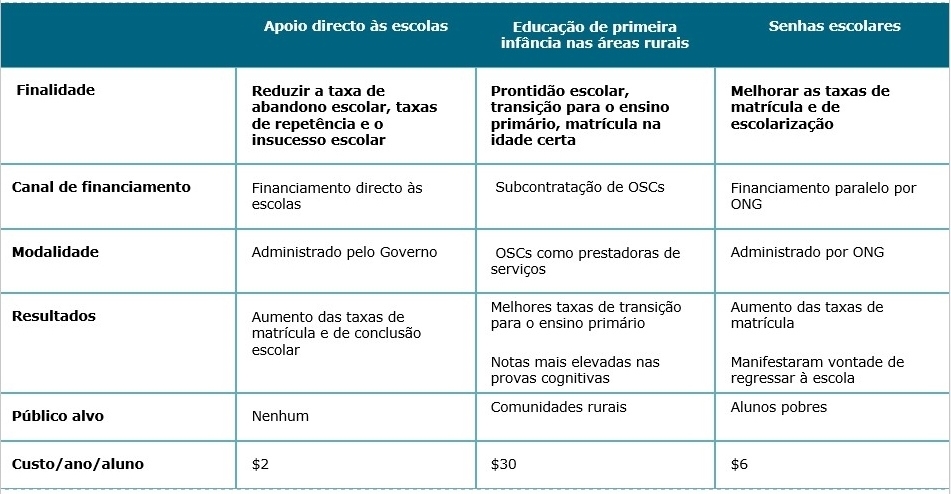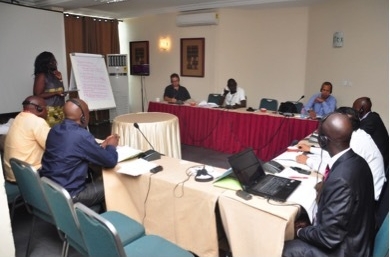
The CABRI Sector Dialogues on “value for money” are designed as thematic seminars for a relatively small group of senior officials in finance and line ministries to exchange knowledge and experience on planning, budgeting, financing and managing expenditure in a particular sector. Two previous CABRI sector dialogues have focused on the infrastructure and health sectors. The Education Sector Dialogue, held on 25-27 February, 2013 in Accra, Ghana, was the third in a series of CABRI sector dialogues. Dialogue participants included finance and education officials from eight countries: Ghana, Kenya, Mauritius, South Africa, Botswana, Mali, Senegal and the Republic of Congo. There were also education policy experts from the African Development Bank, Hewlett Foundation, the Association for Development in Education in Africa; the Education Policy and Data Center, the Abdul-Latif Jameel Poverty Action Lab, and the Innovation for Poverty Action. The dialogue was opened with a keynote address by the Director of Budget of Ghana, Mr. Simeon Kyei, who underscored the importance of education in growth and development and relayed the Ghana experience.
The dialogue centred on the education policy challenge, efficiency spending in education and innovative financing. The recent South African experience of technical inefficiency in the form of the government’s failure to deliver textbooks to schools opened the way for a rich discussion on the importance of monitoring, performance and sanctions in the public service. Strategic allocation was also discussed as a problem in some countries such as Senegal, where the bulk of the education budget goes into primary and tertiary education, leaving secondary with only 10 percent of education spending. A related challenge in Senegal is the lack of sanctions when results are not delivered and the absence of allocating resources to well performing activities. The sharing of Mauritius’ experience in allocating resources in line with key performance indicators (KPIs) offered the Senegalese officials and other participants much to consider in their respective education reforms.


The Way Forward
Participants were asked to indicate future topics that CABRI should focus on in future work in value for money in education. Below are some highlights:
- How to manage large, powerful stakeholders – i.e. teacher unions.
- Decentralised financing – use of capitation / direct support to schools.
- Monitoring and effective teaching.
- Emotional intelligence for Education practitioners.
- Accessibility to Education, skills creation and enhancement.
- Decentralisation and its link to efficiency.
- Integrating lessons on what works in budgeting for education.
- Quality
- Link of Education to Programme-Based Budgeting, outcome, KPIs.
- Indicators that determine and measures value for money in Education.
- Higher education in Africa, especially the cost efficiency aspect.
- Secondary education.
- The effectiveness of official development assistance.
- The evaluation of education policy / impact.
- Improving the learning of students.
- The positive externalities of education on the other sectors of society, the economy and the environment.
- Management of teaching staff and remuneration.
Conclusion
From the quality of the discussions, as highlighted above, it can be said that the dialogue achieved its goal of (i) sharing ideas (ii) fostering an in-depth understanding of the education challenge, and (iii) facilitating a discussion and a generating a better understanding of efficient ways to plan, finance and manage public spending in the education sector. Participants also benefited from presentations on equity and efficiency (delivered by the ADB); the use of data/simulation models to assist in policy making and financing of education (by the Education Policy Data Center) and the use of randomised control trials in evidence-based policymaking (by JPAL and IPA).
By and large, the dialogue helped to improve the communication and mutual understanding between Finance and education ministries.
For additional information, contact Nana Boateng, nana.boateng@cabri-sbo.org
